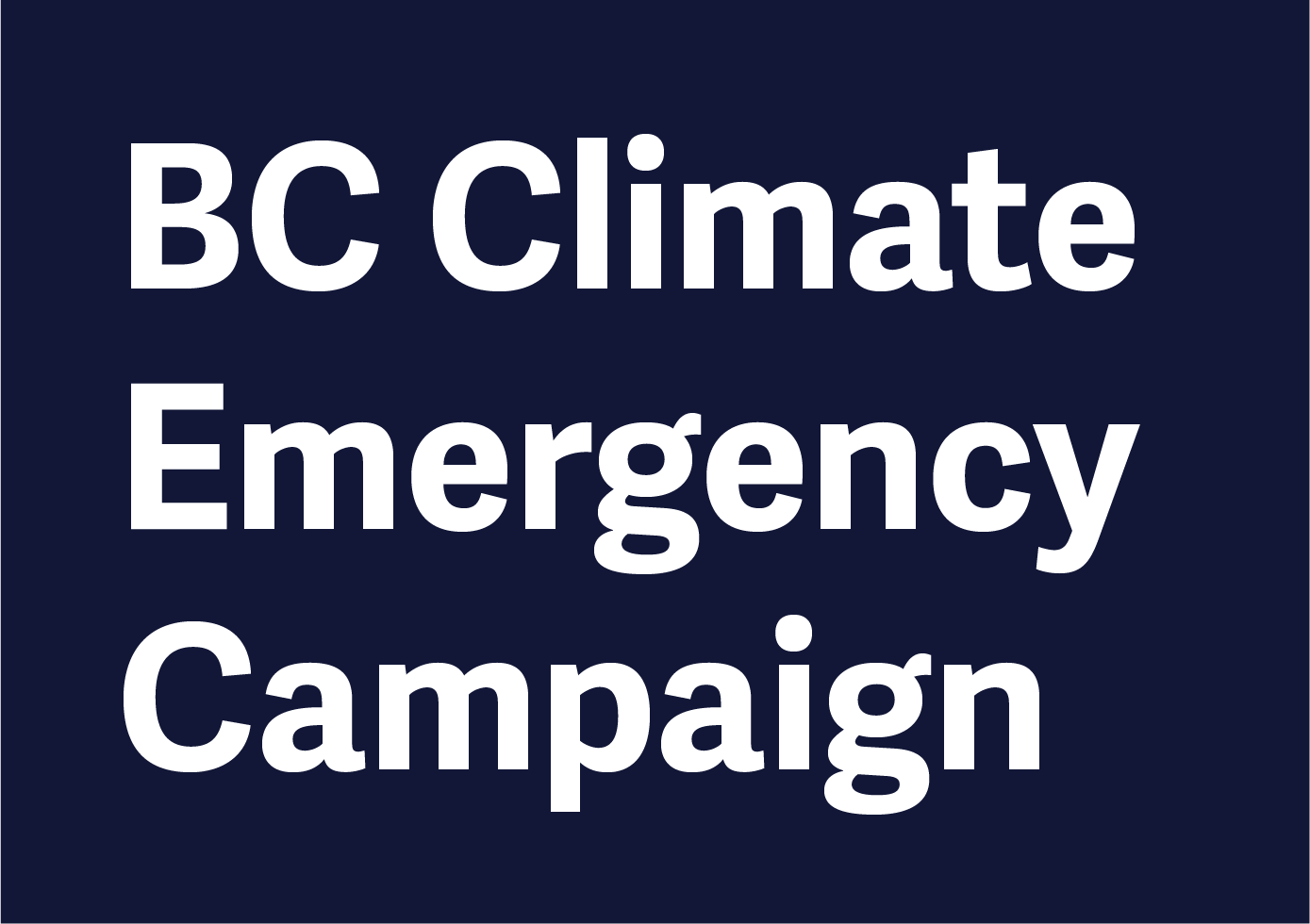2026 BC Budget Consultation Submission
Budget Consultation: Presentation to the BC Selection Standing Committee on Finance and Government Services
Good morning honorable members. Thank you for this opportunity. I am representing the BC Climate Emergency Campaign, whose call for a renewed BC climate emergency plan has been endorsed by over 600 diverse organizations across BC, including businesses, labour unions, Indigenous groups, housing, health and faith groups, and more.
I want to acknowledge the challenging context in which the province finds itself, given the difficulties coming from South of the border, and the ensuing fiscal pressures placed on the government. At the same time, we are also in the midst of a climate emergency. It is crucial that the collective response to this challenging new political context prioritizes climate action, including updating BC’s plan to drive down our carbon pollution.
Here are three recommendations that can simultaneously hasten BC’s transition off fossil fuels, refresh our climate plan, boost employment, expedite the building of new public infrastructure, and decrease our reliance on the U.S.
1. A Youth Climate Corps
First: a Youth Climate Corps. As Canada wrestles with employment impacts caused by U.S. tariffs, it will frequently be young people experiencing the brunt of unemployment. Funding a national Youth Climate Corps is an opportunity which is purpose-built for this moment. This should be a two-year public program that would provide a good green job to anyone under 35 who wants one. The work would fall under three categories: emergency response to extreme weather; strengthening community and environmental resilience to climate change; and building infrastructure that drives down emissions (such as building retrofits and renewable energy projects).
We are urging the province to invest $100 million a year in a Youth Climate Corps, and we believe that if the BC government invited the federal government to cost-match this spending, the new federal government could do so. With a combined investment of $200 million a year, an exciting YCC could employ 4,000 young people annually in BC, paying them a living wage while getting set on a path to a well-paid career.
2. Transportation
The second recommendation we are advancing relates to transportation - the second largest source of GHG emissions in BC. Making public transit more accessible and affordable will lead to greater access to education, health care and employment, stronger public sector jobs, less pollution, and healthier British Columbians.
The Connecting BC report, co-published in 2024 by the BC Federation of Labour and the CCPA, offers a vision to fully transform public transit and transportation province-wide. $15.4 billion in additional investment over 10 years is needed to build a public transit system that provides frequent, speedy and reliable service, within and between all communities including rural and First Nations communities.
Currently, there is $9 billion dollars in highway expansion projects (spanning multiple years) already on the BC Budget docket, many in areas with existing public transit service. All of those funds for highway expansion should be reallocated towards public transportation and active transportation infrastructure. Highway expansion makes traffic worse and increases carbon pollution.
If the government ambitiously invests in public transit as we are proposing, it will relieve pressure on roads and highways, such that a large portion of the Connecting BC plan could be funded.
Connecting BC also calls on the BC government to increase its annual funding to all transit services in BC from $350 million today to $1.5 billion at the end of the plan’s 10-year scope.
3. Increase revenues
Our final recommendation is to highlight the importance of increasing revenues. Eliminating the consumer carbon tax this year meant also eliminating the $3 billion in annual revenues that the tax was collecting, used to pay for climate action and the low-income carbon tax credit. To generate additional revenue, BC could eliminate subsidies to the fossil fuel sector. BC is the second largest provider of fossil fuel subsidies in Canada, second only to Alberta. Fossil fuel subsidies are expensive and incentivize pollution, while the BC government struggles to afford billions for floods and wildfire damages.
BC could also increase revenues by taxing windfall corporate profits. This would raise needed income and build social solidarity as we rally the public to stand up to the threats from the Trump administration.
We are in a climate emergency that is straining our economy, our healthcare system, and our beautiful environment. Introducing a Youth Climate Corps, prioritizing transit and active transportation spending, and increasing revenues to pay for climate action – will address all of these issues and create countless co-benefits for our province. And they are well supported by a diversity of British Columbians.
Thank you.
